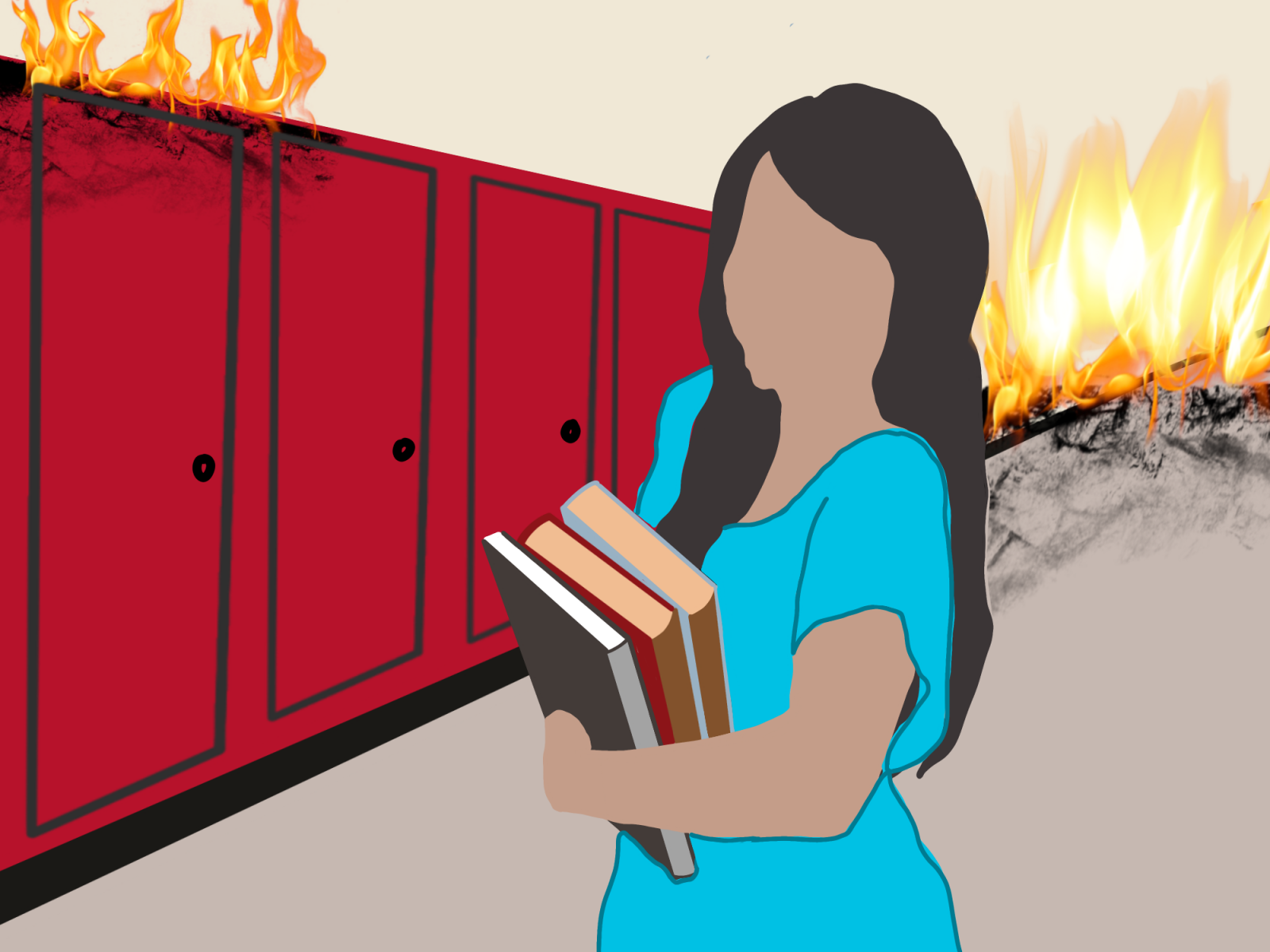I was talking to my mom last week when I realized that I desperately need to address my relationship with academia.
I was complaining to her about a problem set I could not finish yet desperately needed to understand for an upcoming quiz, and she must have inferred my concern even via text. When she reminded me to look after my well-being first and not to exhaust myself over schoolwork, I simply replied “but I must have good grades.”
I am ashamed to admit that I look at my grades tab on Blackboard as an indicator of who I am as a person more than as who I am as a student. I feel at peace with myself when I see numbers in the nineties, slightly disappointed when my eyes come across some eighties and almost crestfallen when it comes to anything below that.

Although my family has never encouraged or enforced such a mindset onto me, I’ve always naturally created a correlation between academic validation and overall success in life. As a student, maintaining a high GPA was the bare minimum I could do, to the extent that I became willing to sacrifice everything else to ensure it, including my physical and mental health.
Because school was my priority, anything else came as an extra pleasure.
Now that I’m writing these thoughts down I am finally aware that other than striving to reach my full potential as a student, I’ve been simultaneously — and somewhat unconsciously — walking on a self-destructive path toward burnout.
In a performance-based society akin to the one that has overtaken the Western world, it is nearly impossible to be immune to developing similar behaviors. Individuals are constantly encouraged to build an identity around external factors such as their accomplishments rather than from within, meaning that happiness and self esteem must take second place in favor of other forms of validation.
Young adults enrolled in school fall victim to this detrimental pursuit of academic success and are ready to compromise their lives for the sake of good grades and high test scores.
The college admission scandal that made worldwide news in 2019 showcased the potential consequences of this enormous pressure. The phenomenon was called “Operation Varsity Blues” and involved numerous parents who paid William Rick Singer to ensure that their kids would be admitted to the most prestigious universities in the country through a ‘side door.’
In other instances, it’s the students who opt for unethical behavior at the expense of excelling on paper. In the book “Doing School: How We Are Creating a Generation of Stressed-Out, Materialistic, and Miseducated Students,” Stanford Professor Denise Clark Pope discusses a study to demonstrate this issue. While following five students from the top of their classes, she learned that they were often inclined to cross their morals and would resort to lies and wrongful plots to get ahead of their peers.
Instead of assimilating integrity and intellectual curiosity, students seem to be rather accepting to face unhealthy competition and anxiety on a daily basis during their school years.
During the fall of 2021, many prestigious colleges in the United States — such as Harvard, Columbia and the Massachusetts Institute of Technology — witnessed a 17% increase in applications, to which have been met with lower acceptance rates. Conversely, community colleges have suffered a 21% decrease in enrollment between 2020 and 2021.
The pandemic has greatly affected this data as students became suddenly surrounded by utter uncertainty about their future, and then yearned even more to have any sort of advantage in the job market. As a result, 23% of graduate humanities majors decided to change their field of interest.
Most importantly, academic pressure seriously endangers one’s mental health. According to the 2020 Stress in America report, 87% of Gen Z youth in college considers school as a crucial source of stress. If not addressed, the stressor can have impactful long term effects on an individual’s psyche, from insomnia and depersonalization to mental health illnesses such as anxiety and depression.
Especially the latter two have worryingly heightened in the recent years and reached new peaks in the last two years: 30% of students suffer from depression and 35% suffer from recurrent anxiety symptoms.
The rapid growth of these dismal trends suggests that the current educational framework is raising generations of students constantly on the brink of psychological burnout and who have a distorted interpretation of what it means and what it takes to be successful.
Although addressing the deep-rooted systematic problem of academia and Gen Z’s persistent quest for external validation would be too complicated, change is still possible — and should be promoted — even if only on a smaller scale.
Secondary and postsecondary institutions could offer strength-based approach programs, which aim at uplifting struggling students by helping them find their unique strengths and gifts so as to celebrate them. Students need to hear more often that solely their academic performance will never be the defining factor for their future careers.
Most schools and college campuses offer free counseling with experts for students who are overwhelmed by their schoolwork. Boston University’s Behavioral Medicine offers various services such as phone consultations, a 24/7 on-call service for emergencies and workshops.
Additionally, you can start implementing positive self-talk, learning to forgive yourself and prioritizing your health in your daily routine. Some of these activities take up only a couple of minutes, but can immediately free your mind from oppressive and worrisome thoughts.
Rather than striving for excellence, as students, we should seek balance between our academic and personal life. Educating ourselves and wishing to be rewarded for our effort is completely normal, but we must keep in mind that while nourishing our minds, we also need to nurture our souls.




























































































































